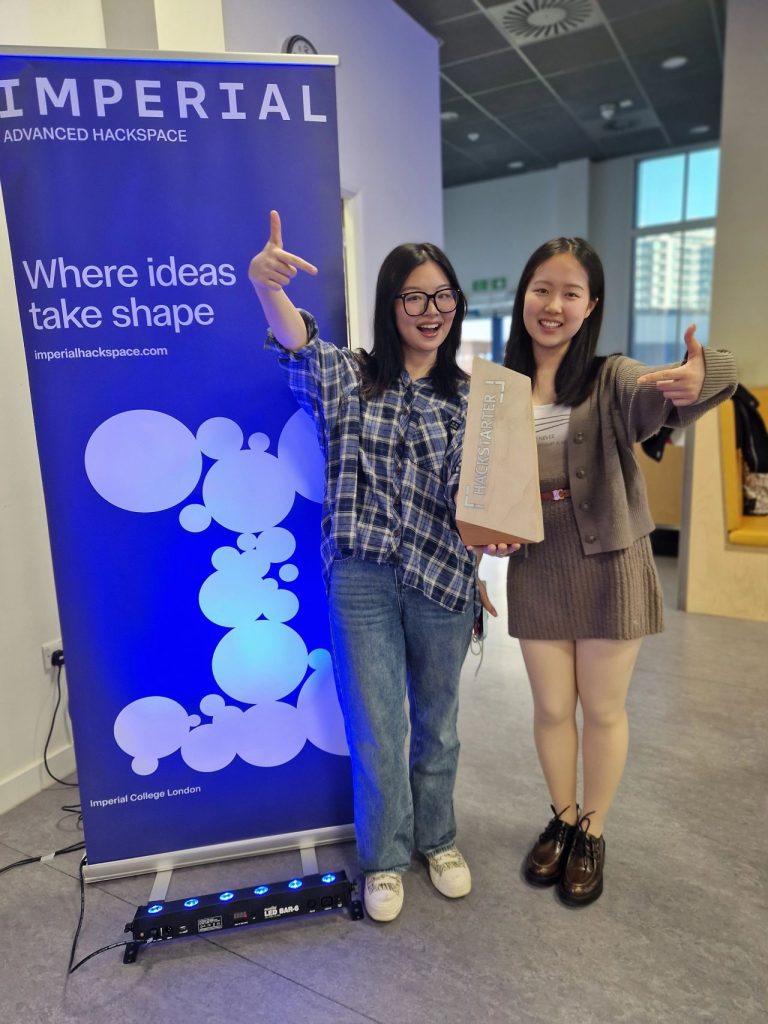Congratulations to Karina Cheng, Biomedical Technology Ventures BSc student, and teammate Yihan Pu, on winning Imperial College’s Advanced Hackspace Hackstarter Grand Final with their Menosense device which monitors menopause via saliva!

Women experiencing menopause undergo hormonal changes that affect their mood, metabolism, and health. Traditional hormone tests need blood or urine samples, which can be invasive and take a long time to produce results.
Menosense introduces a portable saliva-based hormone detector for menopause that uses Lateral Flow Immunoassay technology for home use. It provides quick, noninvasive, and accurate hormone readings in just 20 minutes. A handheld reader analyses disposable test strips, and results appear on the device and a Bluetooth-connected mobile app, allowing users to track their health.
Imperial’s Hackstarter programme helps bring entrepreneurial ideas to life by offering grant funding for early-stage projects.
Students and staff can apply individually or in groups of up to four. If selected, they receive £500 in Hack Credit to create a prototype at the Hackspace, plus access to the Advanced Hackspace and expert technical support.
At the end of the programme, teams showcase their projects at a mini-symposium. A panel of judges picks the winning team, which is awarded up to £2,500 in extra Hack Credits for further development.
Click here to find out more about Imperial’s Hackstarter programme.